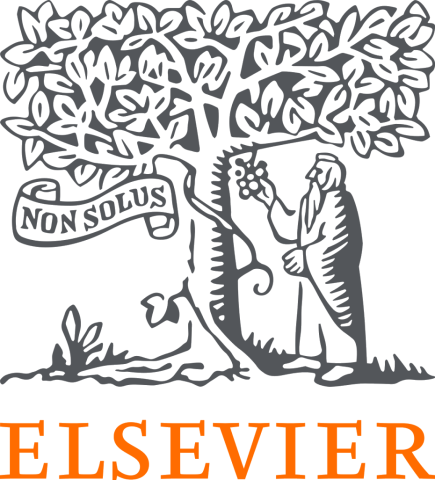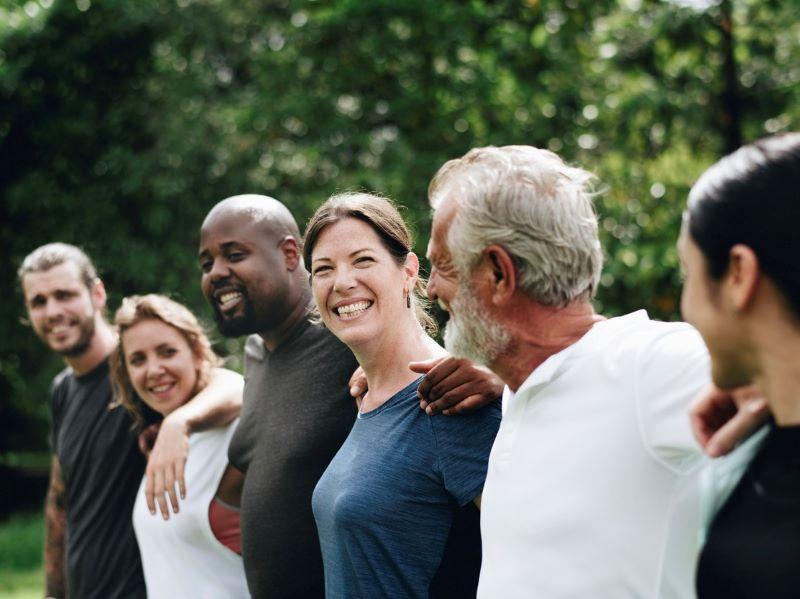
In this together: developing meaningful community engagement
Anna Walas offers advice for facilitating community engagement with research by considering ways in which effective engagement design can help overcome common barriers
Research management
Sponsored by

Elsevier helps researchers and healthcare professionals advance science and improve health outcomes for the benefit of society.

You may also like
Popular resources
Community engagement can be challenging, but it is a key aspect of any academic work that involves groups of people linked by geographic proximity, interests or a sense of identity. Successful initiatives find a way to integrate community representatives into the research team, and opportunities for the researchers to become guests in the communities they work with.
The key challenge is that of designing and fostering inclusive participation that respects the priorities, values and concerns of the researchers and communities concerned. I have witnessed first-hand the way in which community engagement produces a unique working and learning environment for all parties involved, often resulting in opportunities that previously lay outside what was thought possible. Conversely, rushed and badly set up initiatives can backfire and result in damage that can greatly outlive the duration of an individual project.
- Directing research to engage and support local communities
- Eight ways your university can make research culture more open
- Enhance your research through public engagement and collaboration
What makes the difference and how can you avoid some of the common pitfalls? The first part of the answer lies in understanding the dynamics of community participation. For many years, Arnstein’s ladder of participation, a typology of levels of community involvement in planning processes developed in the context of urban planning in the US in 1969, was de facto the go-to model. For Sherry Arnstein, however, participation equals power and is directly correlated with the degree of decision-making rights. For many community members, recognition and participation in itself might be a goal, rather than an influence on the project design and execution. This leads me to my first piece of advice:
Baseline and ground preparation
Take time to collect baseline information, whether through interviews, questionnaires or document research. This will allow you to set realistic expectations of the outcome of the project and provide you with a point of reference from which to judge the progress towards your goals.
Explicitly set your goals and consider the appropriate level of community involvement in project planning. At a minimum you should know the following: What do the communities expect? What level of participation are the different members interested in? Remember that a community is not an amorphous blob, but a series of groups and individuals, who might be pursuing different agendas and have varying degrees of interest in your project.
Before you start your project, check the track record of community research undertaken with the communities you are interested in. Research may not be published, and it may require some work to find the participants and researchers involved in past projects, but past experiences, potential red flags and lessons learned will be priceless when you apply them to your own work.
Institutional memory is short. Community memory is not
Think beyond the scope of your current project. It is easy to get locked into project-based thinking, which often results from institutions’ funding structures and cycles of targeted projects. In such circumstances partner organisations and communities can get left behind when a researcher moves on to another project. A series of short-term projects that did not deliver on promises made will discourage community partners and diminish their interest in future work.
To mitigate this risk, monitor and evaluate your work to ensure you achieve collective objectives throughout the project. Also, consider what will happen after the project is over: What will be its legacy? What level of sustainability needs to be embedded into the project so that it does not become a flash in the pan? At the same time stay open to ideas – often at the point when a project is ready to wrap up, new opportunities for exciting extensions to the engagement work can emerge.
There is more than one way of knowing
Community-based projects provide potential for sharing experience and harnessing the multiple perspectives inherent in community involvement. To make your project a success, focus on two-way, equitable participation with reciprocity in learning and sensitivity to the communities’ ways of working. In my experience, community partners excel through their applied, dispersed and situated knowledge as well as their awareness of where potential unknown unknowns might be hiding. Acknowledge your community participants and collaborators in publications, for example through co-authorship, or mentoring independent research.
Consider potential barriers
Building bridges and developing relationships takes time. This can be the most time-consuming aspect of your project, but there are a few things that can make the process easier for everyone involved. Remember that campuses can be perceived as exclusive spaces, which is why it is worth bringing activities into spaces that are familiar to your participants and partners, such as community centres, independent galleries, cafes and other non-formal venues.
Some barriers can be financial, such as the time required off work for people to take part in your project. Planning compensation for your participants’ time is something you can, and should, write into your funding plans. Other barriers may include language. You might consider compensating for the time of a community translator and learning the basics of the target language and culture yourself. To boil this down to basics, be aware of the inequalities and power structure implicit in your project, its team and its context.
Collaborate with a partner organisation
It is difficult to achieve impact if all activities, such as training sessions, production of resources and writing of policy papers, are done by you. Working with a recognised organisation whose goals align with yours will boost your reach, but also in the long run create relationships that outlive individual projects. Appropriate organisational partners could include charities, museums, NGOs, local government bodies, organised community groups or societies, whose missions align with your project goals and who will still be there when you have moved on.
Make the most of your institutional setting
A strength of working through a higher education institution is that it provides you with an institutional identity. This includes access to your institution’s resources, skills, knowledge base and networks, organisational capital that can propel creative opportunities forward for you and community members, should they choose to continue the work initiated through your project, or to develop it in their own unique direction.
This advice is inspired by the experience of researchers at University of Nottingham whose journey into community engagement I have been privileged to be a part of. For this I owe them a huge debt of gratitude. For an in-depth look at community engagement in the context of BAME communities, check out Common Cause Research.
Anna Walas is faculty research impact officer and an honorary research fellow in the Faculty of Arts, University of Nottingham.
She is part of a team from the University of Nottingham and Nottingham Trent University that has been shortlisted for Outstanding Contribution to the Local Community at the Times Higher Education Awards 2021. A full list of shortlisted candidates can be found here; the winners will be announced at a ceremony on 25 November.
Academics and university leaders from across the UK and Ireland will come together at THE Campus Live UK&IE to talk about institutional strategies, teaching and learning, the student experience and more. Join us for this two-day event in London.
Research management
Sponsored by


